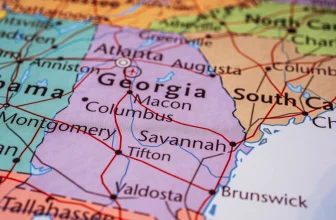
For as long as people have advocated for the legalization of recreational marijuana, one of the primary incentives has been tax revenue. For detractors, this was mere smoke and mirrors. But a new report on California’s 2020 to 2021 fiscal year has put a further nail in the coffin of skepticism.
California’s tax revenue from adult-use marijuana sales added up to around $1,031,879,926, or just over $1 billion. Even more impressive, that number represents a whopping $2,067,681,715 of tax revenue since the state legalized recreational weed in 2018. It’s also 50-60% more than the state collected in the previous fiscal year.
Consider this: each quarter of FY2021 has so far produced 25% to 45% more tax revenue than the same quarter in FY2020.
Consider also that this incredible trend has occurred despite the fact that the state and world are in the midst of a devastating pandemic, which has shuttered innumerable businesses and led to our highest unemployment numbers since the Great Depression. Cannabis businesses are also excluded from eligibility for the federal aid that has proven so helpful to other industries, meaning this growth has been entirely supported by direct sales.
Furthermore, the figures above may continue to rise. It’s always the case that a certain number of businesses will file their taxes late, meaning that when their numbers finally come in, the overall sum will increase. In the previous fiscal year, this occurred when an initial estimate of $163 million was adjusted upwards by 20.9% due to late filings.
How does California spend its marijuana tax revenue?
According to The Motley Fool, the state’s adult-use recreational marijuana revenue first covers research and regulatory costs. From there, 20% goes to environmental programs, 20% to public safety initiatives, and 60% to kid-targeted anti-drug programs.
What does this mean for other states?
At the time of writing, Congress leans Democratic. Since Democrats have tended to be more supportive of marijuana legalization, there is hope that legalization efforts will move forward under their leadership. The STATES Act, MORE Act, and SAFE Banking Act are all examples of legislation that are under discussion at the moment.
The snowballing tax revenue numbers from states like California — it’s hard to argue with a billion dollars — are likely to have a significant impact on convincing hesitant legislators, though.
To really understand what might drive legalization in states that currently prohibit recreational weed, it’s worth looking at how much money they’re foregoing by not legalizing. The following stats come from the Tax Foundation, which took average excise tax numbers and the estimated number of marijuana users in each state to calculate how much tax revenue that state could earn.
Some examples include:
- Alabama: $92,217,856
- Florida: $448,740,070
- Georgia: $198,400,771
- Indiana: $157,009,061
- Louisiana: $81,616,779
- Maryland: $135,837,117
- North Carolina: $182,947,622
- Ohio: $220,827,478
- Oklahoma: $67,680,000
- Pennsylvania: $244,553,615
- Rhode Island: $35,455,500
- South Carolina: $96,680,914
- Tennessee: $132,509,552
- Texas: $397,424,206
- Virginia: $139,977,848
Other states are showing strong growth, too.
High cannabis sales have not been unique to the sunny state of California. In Washington State, Oregon, Colorado, and Alaska, sales have also boomed during COVID in numbers much higher than in previous years.
In Illinois, consumers spent around $128 million on recreational cannabis in July 2021 alone, which is more than twice what they spent a year before. That marks five straight months of over $100 million in sales for Illinois’ market. If that trend holds, the state will likely blow past the $1 billion mark by year’s end.
Even in the small northeastern state of Maine, consumers spent $9.4 million in July — 45% more than a year before. A similar trend occurred in Michigan, where more than $171 million in cannabis purchases took place in July.
What it all means
There are plenty of great reasons to legalize marijuana, including arguments in both the social and economic spheres. However, it’s hard to argue with quantitative figures — particularly when they’ve got enough zeroes and commas.
One thing is for sure: California’s billion-plus cannabis-related tax revenues are only going to help the cause.






